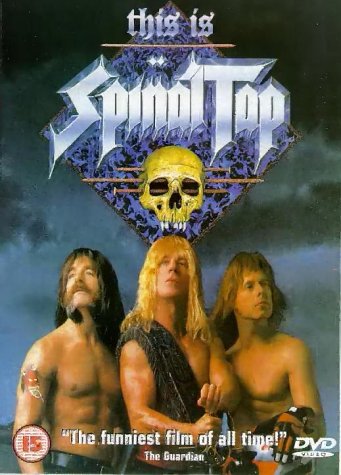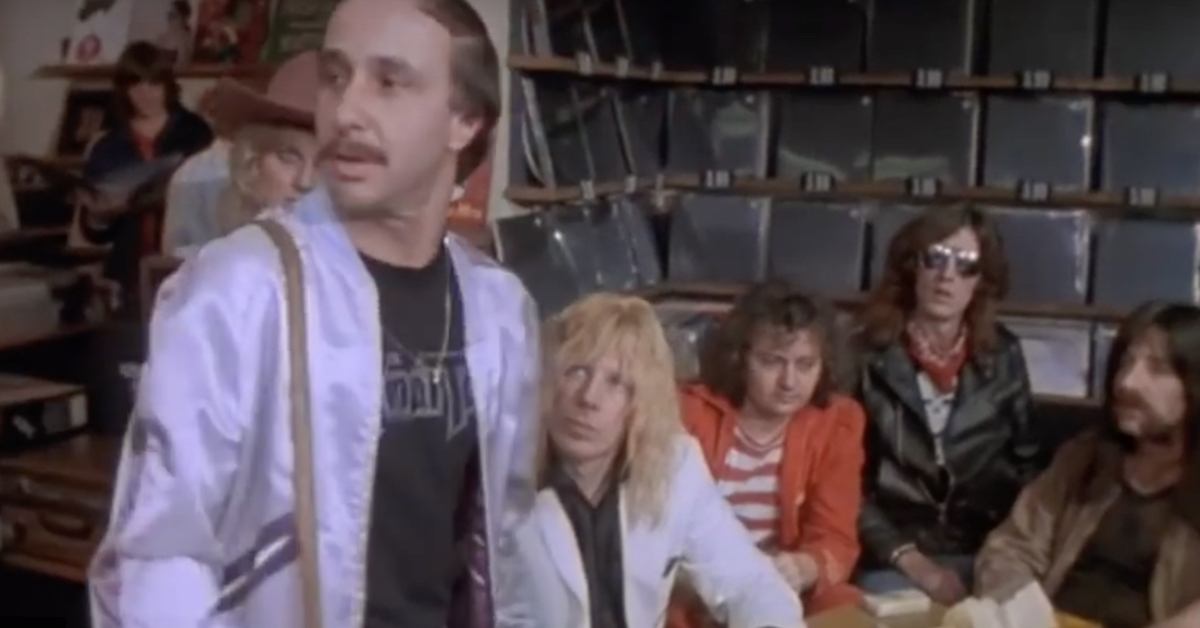 Harry Shearer, Christopher Guest, Michael McKean and Rob Reiner, the creators of the iconic mockumentary film This is Spinal Tap, have announced that they expect to go to trial in the coming months in their lawsuit against StudioCanal.
Harry Shearer, Christopher Guest, Michael McKean and Rob Reiner, the creators of the iconic mockumentary film This is Spinal Tap, have announced that they expect to go to trial in the coming months in their lawsuit against StudioCanal.
In a Dec. 3, 2019 press release, according to the plaintiffs’ complaint, Vivendi, through its agent StudioCanal, “willfully manipulated certain accounting data, failed to protect the rights entrusted to it and ignored contractually-obligated accounting and reporting processes – all of which served to deny Shearer, and his fellow co-creators, their rightful stake in the production’s profits. The action seeks hundreds of millions of dollars in compensatory and punitive damages, and a declaration that the co-creators own all copyright and trademark interests in the film property.”
On Nov. 5, the creators resolved their dispute with Vivendi’s Universal Music Group regarding the film’s soundtrack recordings.
Under that agreement, in which financial terms were not disclosed, Spinal Tap’s recordings will continue to be distributed through UMG and eventually the rights will be given to the creators.
In the music announcement, Shearer said: “I must admit, from the moment we first began mediation with them to now, I’ve been impressed by UMG’s respect for creatives and their distinctive desire to seek a prompt and equitable solution to the issues.”
Guest noted: “It was refreshing to be treated so constructively and with such courtesy by UMG and I’m pleased we have been able to resolve this.”
The original complaint, first filed in the U.S. District Court of Central District of California on October 18, 2016, for breach of contract, fraud and anti-competitive business practices in respect of Studio Canal’s management of rights in This is Spinal Tap and its associated intellectual properties continues against Studio Canal and Ron Halpern, Studio Canal’s then senior executive, and is filed here.
The continued litigation now shifts to a pre-trial discovery phase. This gives the plaintiffs the right to seek full access to StudioCanal’s internal books and records going back decades. The creators seek to show “that the defendants have, for more than two decades, deliberately shielded their corporate failings and accounting sleight of hand, and withheld accurate information relating to the revenues and profits generated by the film.”
“They reported that we were entitled to $81 between the four of us, for 35 years of merchandise sales,” said Shearer in the Dec. 3 statement.
“This isn’t just about the four of us – it never has been,” said co-creator and the film’s director, Rob Reiner. “The film was made on the thinnest of budgets. And so many creative people worked hard contributing their talents to a film that has stood the test of time. That’s why we took on this fight. Not just for us, but for all hardworking artists who should get their fair share from their creative efforts.”
The plantiffs have created a website, Fairness Rocks.
This is Spinal Tap – produced on a shoestring budget, has become a cult classic since its first theatrical run, in 1984. The film has garnered international praise and acclaim, having been included in numerous “best ever” lists.

The classic failed in-store scene in This is Spinal Tape
The band, composed of Shearer, Guest and McKean, performing as their beloved stage personae in the company of a rotating cast of percussionists willing to risk the kit (as so many of their predecessors have been accident prone), has toured the world multiple times since the film’s release. Hundreds of thousands of Spinal Tap sound recordings have been sold over the ensuing decades and the film has been released on a host of video formats down the years.
Full-length Spinal Tap albums are still available for physical sale, download and streaming.
On October 18, 2016, Shearer filed a lawsuit alleging the French conglomerate, Vivendi S.A., engaged in anti-competitive and unfair business practices, as well as fraudulent accounting directly related to its management of the cult-classic film, This Is Spinal Tap. The action sought $125 million in compensatory and punitive damages.
On February 7, 2017, Guest, McKean and Reiner, all of whom were key players in the rock mockumentary, joined Shearer’s lawsuit vs. Vivendi. At that time, they upped their request for damages, to $400 million, for “anti-competitive and unfair business practices, as well as fraudulent accounting,” they said in a statement at the time.
Fast forward to August 29, 2018. The plaintiffs celebrated a significant benchmark in the suit when U.S. District Court Judge Dolly M. Gee turned the amps up to “11,” when she ruled to allow the trial to move forward, thus defeating the defendants’ motion to dismiss.
Speaking on behalf of his co-plaintiffs, Shearer said at the time: “We are pleased with the decision in our ongoing litigation involving the film ‘This is Spinal Tap.’ The Court’s ruling makes clear that we can pursue damages both for breach of contract and fraud, including punitive damages, based on the defendants’ failure to properly account to us for our profits in connection with This is Spinal Tap. It is equally important that we can pursue our right to recapture our copyright interests and other intellectual property rights in connection with the Spinal Tap film and music, so that we can control our own creative product and benefit from it, as we should have all along. We look forward to finally getting our day in court, at a trial, with the evidence that to date Vivendi has tried to hide from us.”
Watch Guest’s character, Nigel Tufnel, explain: “Most blokes are going to be playing at 10…”
Shearer co-created the film, co-wrote the soundtrack and starred as the band’s bassist, Derek Smalls. The actor is also well known for his voicing of 23 characters on the long-running animated television series The Simpsons.
According to the original complaint filed in Los Angeles, CA, Vivendi and its agents, including StudioCanal and Universal Music Group, “willfully manipulated certain accounting data, while ignoring contractually obligated accounting and reporting processes, to deny Shearer and his fellow co-creators their rightful stake in the production’s profits.”
“Almost 40 years ago, Christopher Guest, Michael McKean, Rob Reiner and I created the somewhat legendary band Spinal Tap,” said Shearer in the 2016 announcement. “But despite the widespread success of the film and its music, we’ve fallen victim to the same sort of fuzzy and falsified entertainment industry accounting schemes that have bedeviled so many other creators. In this instance, the fraud and negligence were just too egregious to ignore. Also, this time, it was personal.”
Watch the classic airport security scene. “Do you have any artificial plates or limbs?” “Not really, no.”
In 1982, Reiner, Shearer, Guest, and McKean signed an agreement with Embassy Pictures for the production, financing and distribution of This Is Spinal Tap. The agreement ensured profit participation payments, at the rate of 40 percent of net receipts, to the creators based on all sources of revenue, including merchandise and music.
Related: Guest, Shearer and McKean reunited in 2019 for a special 35th anniversary performance
After two years of production, the film opened on March 2, 1984 and soon became a cult favorite. In 2002, the film’s lasting appeal led the U.S. Library of Congress to designate it as a culturally, historically, or aesthetically significant film.
The film was produced on a shoestring budget of $2.25 million. The complaint alleges that This Is Spinal Tap and its accompanying music and merchandise “earned tens of millions of dollars in revenue, according to the complaint – through re-releases, album and singles sales, merchandise sales, and distribution of the film in various formats across the globe over the course of the last 32 years,” noting that “these profits were not fairly shared with the four co-creators, cast, or crew.”
Watch the classic “Hello Cleveland” scene. “Go straight ahead… turn right at the next two corners…”
The suit alleged that “when Vivendi acquired the rights to This Is Spinal Tap in 1989… it began a concerted and fraudulent campaign to hide, or grossly underreport, the film’s revenues in order to avoid its profit participation obligations. In the past two years, Vivendi has altogether failed to produce an account of any Spinal Tap revenue.”
The suit claimed that between 1989 and 2006, total income from soundtrack music sales was reported by Vivendi as $98.
“This is a simple issue of artists’ rights,” said Shearer. “It is stunning that after all this time, two cinema releases, all the various home video format releases, all the records and CDs, and all the band-themed merchandise still widely available worldwide, the only people who haven’t shared Spinal Tap‘s success are those who formed the band and created the film in the first place.
“Though I’ve launched this lawsuit on my own, it is in reality a challenge to the company on behalf of all creators of popular films whose talent has not been fairly remunerated. I am just one person seeking redress for blatant injustice, but I hope this lawsuit will, in its own way, help set a new precedent for faithful and transparent accounting practices, and fair artistic compensation, industry-wide.”
Related: This is Spinal Tap is on our list of movies that rock







1 Comment so far
Jump into a conversationnone more black